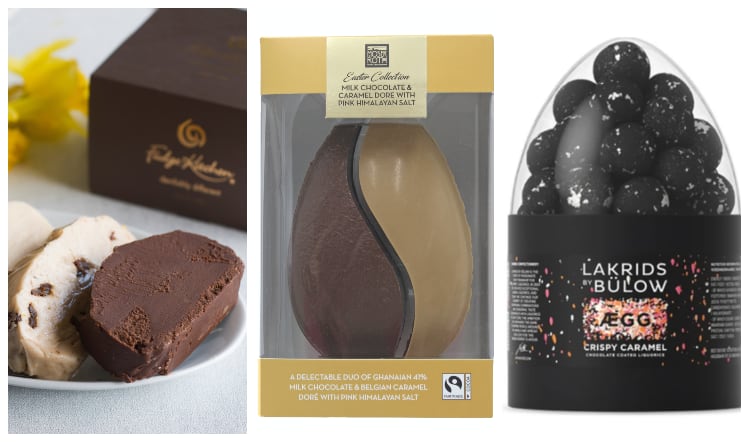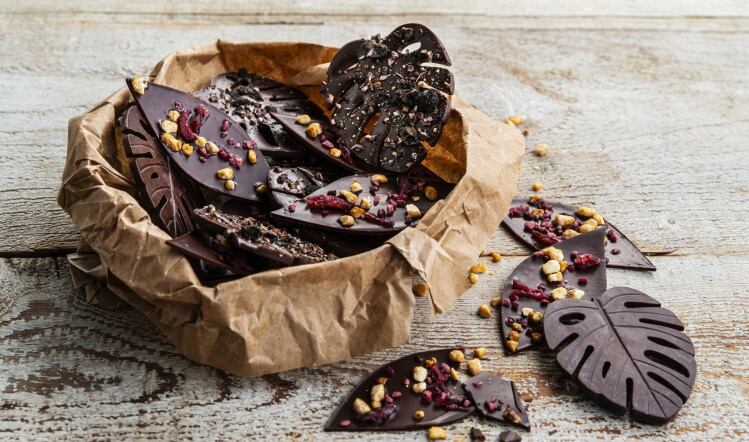The emergence of agile and innovative industry disruptors has shaken up the food and drink manufacturing industry of late, sometimes making it easy to overlook how the larger, more established companies have been keeping up with rapidly changing consumer demands.
Often, these larger entities have been tarred with the brush of being hampered by their size, supposedly unable to react quickly enough to ride the popularity wave before consumers have moved on to the next best thing. Yet that’s not necessarily the case.
Take Unilever, for example, which numbers some of the UK’s most iconic brands in its portfolio – Hellmann’s, Knorr and a raft of leading ice cream products including Wall’s, Magnum and Ben & Jerry’s.
Behind the walls of its UK HQ in Leatherhead, Surrey, NPD in its ice cream division over the past two years has seen a constant stream of activity, with the company apparently ahead of the curve on a number of fronts.
These include emerging trends and flavours, environmental and social concerns, and consumer demands, which it is handling with apparent speed and efficiency. And, in doing so, it is bucking any staid image of a slow-to-react traditional manufacturing behemoth.
“When it comes to fast moving consumer goods in this industry, no one gives an inch,” admits Andre Burger, VP of ice cream and snacking at Unilever UK&I. “You’ve got to be ahead of your game.”
He welcomes the disruptors, saying they keep his company on its toes, requiring it to be more agile. And his words are borne out in the sheer response taking place to the company’s ice cream brands, from which it generated revenues of £1.1bn in 2019.
The company has outlined three core growth drivers in the ice cream sector: ‘Indulgence’, ‘Better for You’ and ‘Snacking’. Here is just some of its response to recent popular trends:
Vegan/plant-based: By late 2018, Unilever had already embraced the vegan trend, launching Magnum Vegan in Classic and Almond varieties. Its Cookie Dough ice cream now also comes in a vegan format.
New flavours/trends: In September last year, it tackled consumers’ evident love for sweet and salty combinations, introducing Magnum Macadamia Salted Caramel.
And, in January this year, it combined Magnum with the on-trending ruby chocolate from Barry Callebaut to launch Magnum Ruby, pairing the sweet berry flavour of the ruby chocolate shell with the rich vanilla of its ice cream.
It has high hopes for the success of this latter brand during the coming summer, with a £5.5m campaign due to run from 4 May to 31 August, including above-the-line TV, online, video and social media activity, as well as PR and experiential moves.
Burger acknowledges that development cycles can vary from short to long depending on the product and whether a format stays the same. In the case of Magnum Ruby, he adds, the important point was to get the flavour balance right.
Lifestyle/fashion/media: In a bid to appeal to Millennials and Gen Z, the firm has tapped into the recent ‘mermaid’ vibe, making its way around the food world, with the launch last month of Cornetto Mermaid, featuring matcha and raspberry fl avoured ice cream, a crunchy pink cone and raspberry sauce, wrapped in ‘Instagrammable’ holographic packaging to emulate a mermaid’s tail.
It is also on top of lifestyle and occasion moments, with Netflix & Chilll’d an exclusive item in its Ben & Jerry’s brand and an awareness that the direct-to consumer space is becoming rapidly more relevant, as it partners with Just Eat on TV (see box below).
Snacking: Unilever supplies what it describes as “guiltfree permissible little treats”, including mini choc snacks, mini pots and ice lollies, such as its Calippo range under the Wall’s brand, where it recently launched Calippo Cola (90kcal) and Calippo Lime (93kcal).
Sugar reduction: While Burger admits that this is a major challenge, as sugar is “an integral part of the microstructure of ice cream”, the firm is looking at how it can “chase the low-calorie profile” further. Early last year, it partnered with Nice by Nature to create a 100% fruit lolly with no added sugar, at just 22kcal.
Social responsibility: Under its ‘Responsibly Made for Kids’ promise, it has committed not to advertise its ice creams – including its Wall’s Twister, Paddle Pop and Max brands – directly to children under 12 in traditional media or under 13 on social media. Ice creams under this range will feature no more than 110kcal and less than 12g of sugar per product and the firm will stop using cartoon characters, celebrities or social media stars who primarily appeal to young children.
According to Unilever’s own research, 67% of consumers are more likely to support brands that combine a great product with social responsibility.
Environment: Unilever has adopted the stance that all of its brands need to have a holistic awareness on an environmental and ethical front, with different approaches depending on the brand and the core audience.
Burger explains that a company in this day and age “cannot do good business” unless it embraces environmental and social responsibility challenges.
For example, initiatives include its Magnum tubs, launched in post-consumer recyclate (PCR) plastic, while its Netflix & Chilll’d product under the Ben & Jerry’s brand comes in tubs that are 100% recyclable, made with bio plant material as an offshoot of sugar manufacturing.
Also under Ben & Jerry’s it introduced an initiative called Cone Together, focused on refugees and asylum seekers, which it launched at the first ever Global Refugee Forum in Geneva in December 2019.
So, while disruptors might be making the media waves in food and drink, Unilever’s agile and proactive response to consumer demands is keeping it in real contention. While its 2019 ice cream revenue slipped compared to 2018 – at the mercy of a turbulent year weatherwise compared to the hottest UK summer on record in 2018 – sales were still 9% up in value and 3% up in volume on 2017.
Foodservice and delivery opportunity
Horácio Cal, out-of-home category director at Unilever UK, points to low per capita consumption of ice cream in the UK foodservice arena, which he describes as being at “the same level as Portugal”.
So, the company’s aim to double foodservice point of sale in the UK is “realistic”, he says, pointing out that many pubs do not offer ice cream as a regular option.
There is a need for manufacturers to make products “present, available and visible”, he adds. Meanwhile, Unilever’s Ice Cream Now programme is devoted to increasing direct-to-consumer delivery,
with Ben & Jerry’s already partnering with Just Eat on Netflix.
Cal estimates that this segment could generate revenue of £20m for the firm over the next three years.




